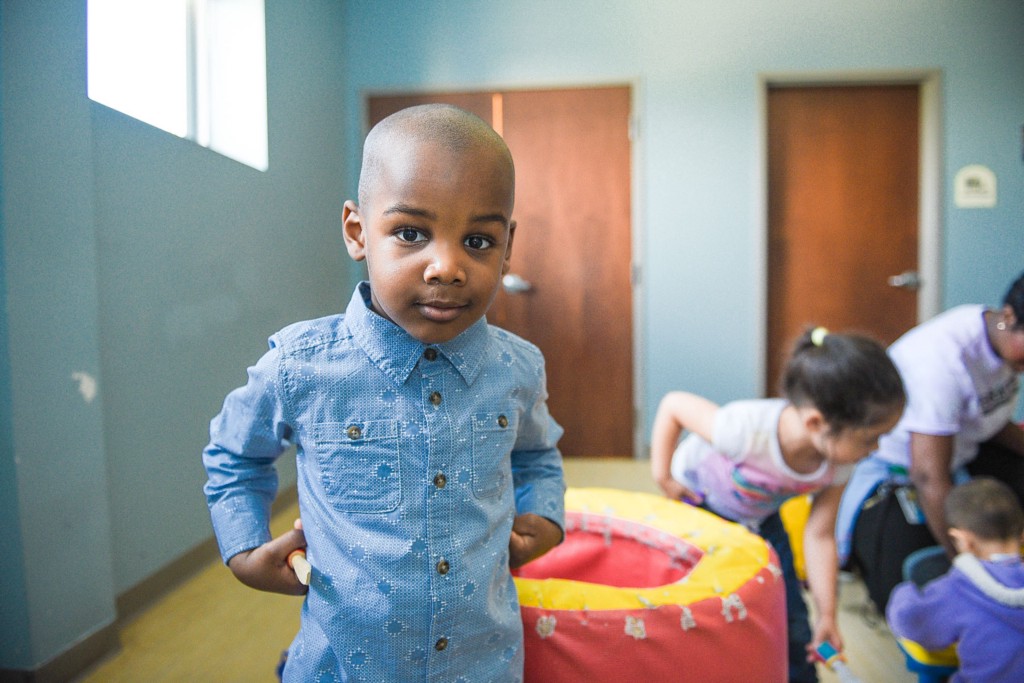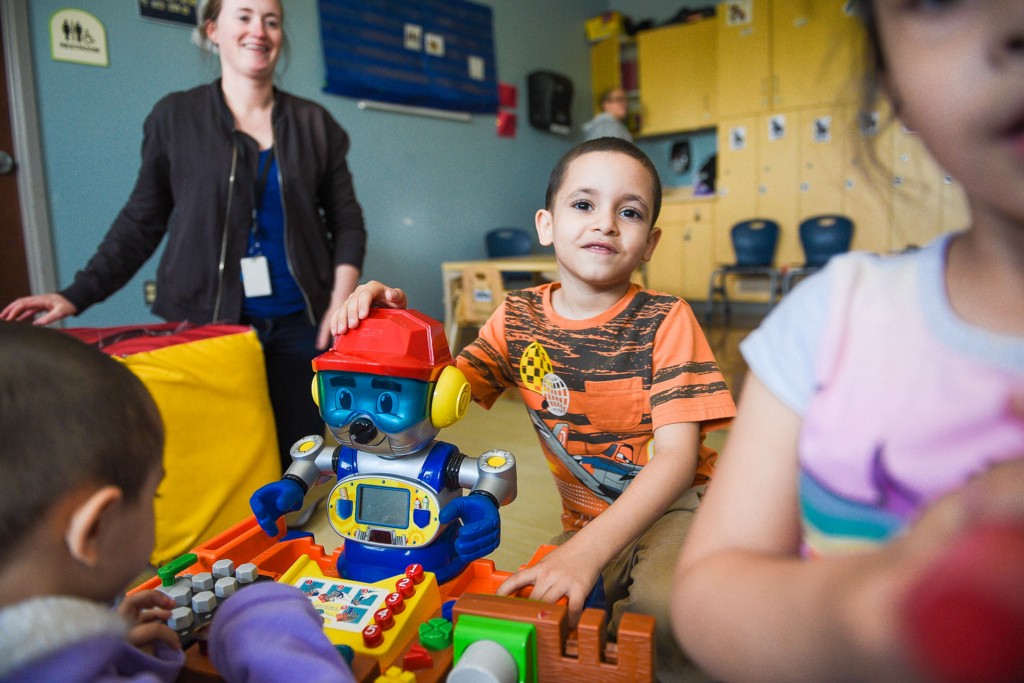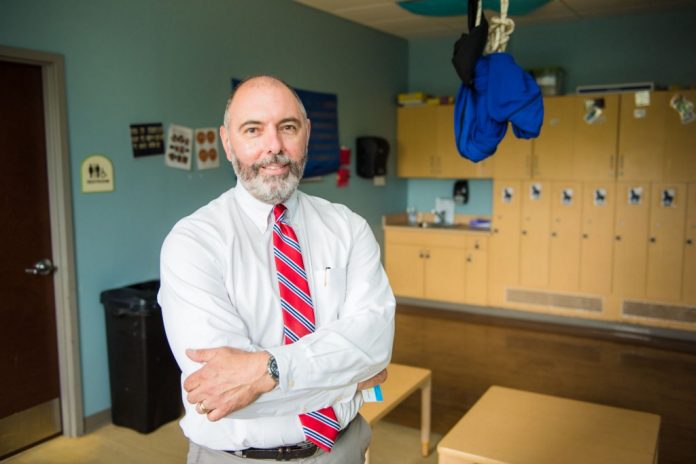Building opportunities: According to CEO David M. Maola, the center’s expansion is vital to meeting the growth in awareness and incidences of the disorder. MARIA YOUNG / TIMES PHOTO
The nation’s oldest autism treatment center and one of the city’s largest is doubling the size of its Northeast Philadelphia location with the help of a $1 million Pennsylvania Economic Initiative Grant.
Renovations are almost complete on The Center for Autism at 2801 Grant Ave., where 1,500 children, young adults and their families benefit from intensive programs that help the clients develop the social, communication and behavioral skills to succeed in daily life.
“It will really allow us to service more clients from a relationship-based approach, which isn’t readily available elsewhere,” said Alena Subacus, the center’s assistant director, who oversees its pre-k program.
The 15,000-square-foot addition to the center’s existing 12,500-square-foot facility will also enable the site to add 45 permanent full-time and 21 part-time employees, almost doubling its staffing. The Grant Avenue location is one of two operated by the nonprofit organization in the city.
Dr. Bertram A. Ruttenberg, a child psychologist who began researching the disorder in the 1940s, opened the first Center for Autism in Wynnefield in 1955 as a demonstration project of the University of Pennsylvania. The center became the first in the country to treat autism exclusively and pioneered various forms of therapy, including music, movement and sensory integration. Ruttenberg, now in his 90s, still serves on the center’s board of directors. The center opened its second location on Grant Avenue in 2009.
According to CEO David M. Maola, the center’s expansion is vital to meeting the growth in awareness and incidences of the disorder. The Centers for Disease Control reported in 2015 that about one in 45 children in the United States are born with autism and that the prevalence of autism in U.S. children had increased by 300 percent since 2000. In Philadelphia, one of the greatest challenges facing families affected by autism is the high demand for diagnostic evaluations.
“A problem in Philadelphia and a lot of places is there’s a huge backlog just to get an autism evaluation,” Maola said. “It’s a very subjective process that takes hours over a period of days.”
The new expansion will allow the center to conduct evaluations in the Northeast for the first time. It will also double its capacity for its largest program. The nationally accredited pre-k program accounts for more than half of the center’s clients, serving children ages 2 to 6.
“The earlier you provide treatment, the better chance the child has of having positive experiences,” Maola said.
According to Subacus, the pre-k program operates Monday to Friday, five hours per day. Children are assigned eight to a room and grouped based on their individual abilities and challenges. The client-to-staff ratio is two-to-one. Their time is divided among individual, small group and larger group activities that include occupational and speech therapy, movement and exercise, music, food tasting, sensory therapy, arts and crafts, dance and life skills. The center employs psychiatrists, psychologists and social workers who help clients set individualized goals and assess their progress.
Usually, periods are limited to about 20 minutes and interspersed with story times and “relax” times. The Center for Autism employs a unique relationship-based approach, according to the pre-k program director.
“We join the children in their world and pull them into a shared world with us,” Subacus said.
Even after the children move onto grade schools, they can continue receiving services twice a week in the center’s social competency program. Another variation of the social competency program is held weekly each Saturday for older children and young adults up to age 25.
Under Pennsylvania law, children with autism are eligible for coverage under Medicaid. The center collects most of its revenue in reimbursements from the federal healthcare program administered by the city’s Office of Behavioral Health.
For more information about services offered by The Center for Autism, visit www.thecenterforautism.org or call 215–878–3400. ••

Asher Nesbitt, 4, plays in an activity room at the Center for Autism. MARIA YOUNG / TIMES PHOTO

Play time: Renovations are almost complete at the Center for Autism, 2801 Grant Ave., which is doubling in size. Jayden Oliveras, 4, plays in an activity room at the center. MARIA YOUNG / TIMES PHOTOS





